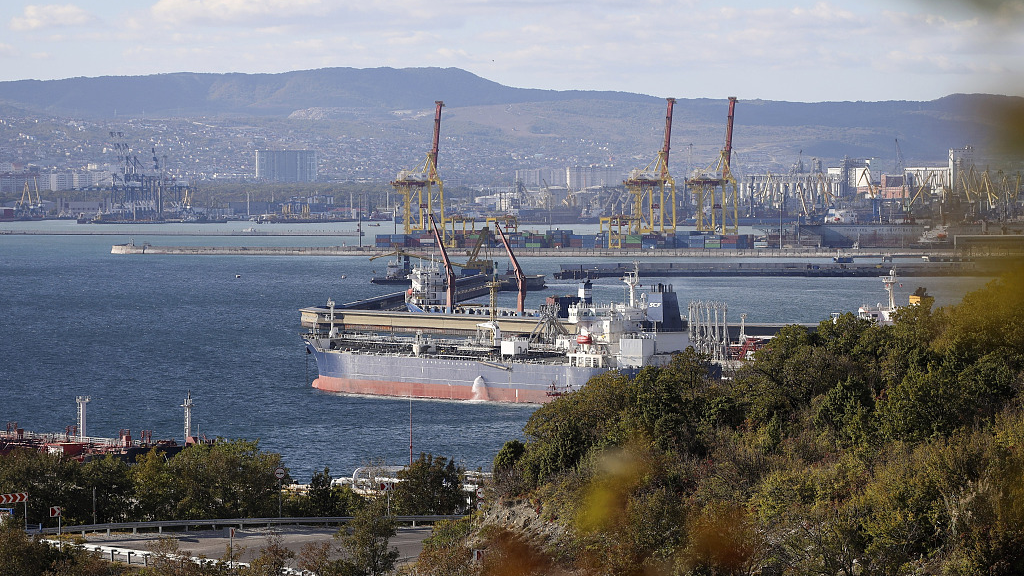
An oil tanker is moored at the Sheskharis complex, part of Chernomortransneft JSC, a subsidiary of Transneft PJSC, Novorossiysk, Russia, October 11, 2022. /CFP
An oil tanker is moored at the Sheskharis complex, part of Chernomortransneft JSC, a subsidiary of Transneft PJSC, Novorossiysk, Russia, October 11, 2022. /CFP
The Group of Seven (G7) price cap on Russian seaborne oil came into effect on Monday, but Russia has said it will not abide by the measure even if it has to cut production.
The G7 and Australia on Friday agreed to cap the price of Russian seaborne crude oil at $60 per barrel.
The price cap, to be enforced by the G7, the European Union (EU) and Australia, comes on top of the EU's embargo on imports of Russian crude by sea and similar pledges by the United States, Canada, Japan and Britain.
It allows Russian oil to be shipped to third-party countries using G7 and EU tankers, insurance companies and credit institutions, only if the cargo is bought at or below the price cap.
The cap could make it difficult for Moscow to sell its oil for a higher price as the world's key shipping and insurance firms are based in G7 countries.
Russia, the world's second-largest oil exporter, said on Sunday it would not accept the cap and would not sell oil that is subject to it, even if it has to cut production.
"We are working on mechanisms to prohibit the use of a price cap instrument, regardless of what level is set, because such interference could further destabilize the market," said Russian Deputy Prime Minister Alexander Novak, who is in charge of the country's oil, gas, atomic energy and coal.
"We will sell oil and petroleum products only to those countries that will work with us under market conditions, even if we have to reduce production a little," Novak added.
Noting the cap could trigger trouble in the products markets and affect other countries besides Russia, Novak termed the move by the West a gross interference that contradicted the rules of free trade and would destabilize global energy markets by triggering a shortage of supply.
The Saudi-led oil cartel – Organization of the Petroleum Exporting Countries – and allied producers including Russia did not change their targets for shipping oil to the global economy amid uncertainty caused by the price cap.

People are seen in their flat without electricity power in Solomianskyi district in Kyiv, Ukraine, November 30, 2022. /CFP
People are seen in their flat without electricity power in Solomianskyi district in Kyiv, Ukraine, November 30, 2022. /CFP
While Russia denounced the price cap, UN human rights chief started a four-day visit to Ukraine on Sunday.
UN High Commissioner for Human Rights Volker Turk appealed an end to "violence" as he visited Bucha, Irpin, north of Kyiv, at the start of the mission.
Turk is scheduled to hold a news conference in Kyiv at the end of his mission on Wednesday after meeting officials and civil society in areas including Kyiv, Kharkiv and Izium.
Ukraine is still struggling with power shortage as more than 500 Ukrainian localities remained without power Sunday due to the ongoing conflict with Russia, AFP reported, citing Ukrainian Deputy Interior Minister Yevgueny Yenin.
With further strikes on the infrastructure facilities expected, Ukrainians fear a difficult prolonged winter as well as a flood of departures by refugees from the ongoing conflict now into its 10th month.
(With input from agencies)